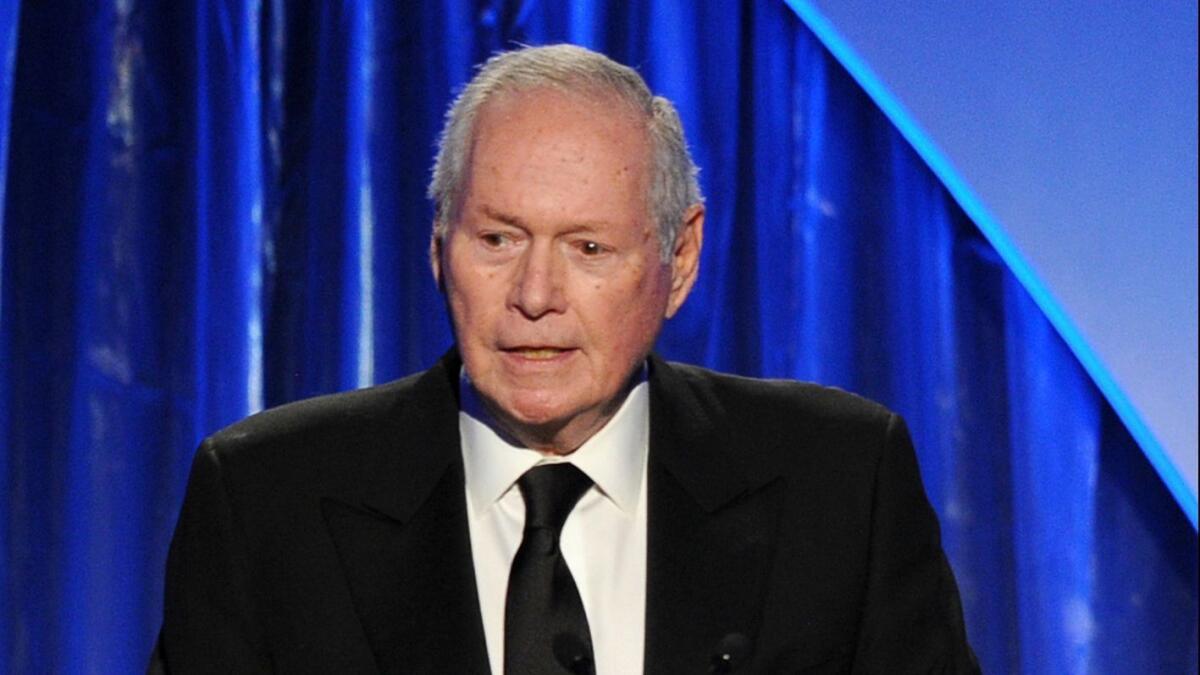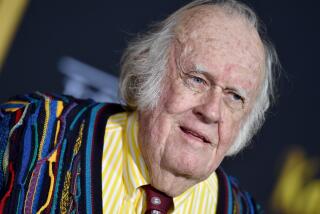David Picker, studio chief who brought James Bond and the Beatles to the theater, dies at 87

He was the first to guide an X-rated film to the top of the Oscar heap, introduced the Beatles to Hollywood with “Hard Day’s Night” and “Help!” and convinced a reluctant Ian Fleming that, yes, James Bond might fare pretty well as a cinematic character.
A third-generation movie man, David V. Picker was a studio chief at United Artists, Columbia and Paramount in a prestigious run of box-office successes including “Last Tango in Paris” and “Ordinary People.”
Despite the accolades and the Oscars, Picker was quick to remind admirers that his career would likely have turned out the same even if he’d rejected the movies he helped bring to the movie houses of America and greenlighted those he’d kicked to the curb.
“My career would have probably turned out the same,” he wrote in “Musts, Maybes and Nevers: A Book About the Movies,” his 2013 memoir.
Active until late in life, Picker died Saturday in New York City, his hometown. He was 87 and had been fighting colon cancer, wife Sandra Jetton Picker said.
Picker estimated that he read about a dozen scripts a week. He didn’t mind taking a chance on a film, such as 1969’s “Midnight Cowboy,” a curious and oddly disturbing story about a friendship between a New York City street hustler and a kid from small-town Texas under the impression he could make a living as a gigolo.
To up the risk factor, Picker turned to a director just coming off a flop and a public acknowledgment that he was gay, handed the story to a screenwriter who’d been blacklisted after being identified as a Communist and hired a producer who was in marital crisis. Oh, and the film was rated X.
Yet somehow it all worked. The film won three Academy Awards, including best picture.
Not everything turned to gold for Picker, however. He passed on “Nashville,” generally considered to be director Robert Altman’s masterpiece, and was at Columbia when the studio released “Ishtar,” the madcap Morocco comedy starring Dustin Hoffman and Warren Beatty that is widely believed to be the worst film ever made.
David Victor Picker was born on May 14, 1931, in New York, and it seemed inevitable that he would end up in the movie business.
His grandfather, a Russian immigrant, operated a nickelodeon in the Bronx, and from there built a small chain of theaters in the city. His father Eugene ran the chain, and his uncle Arnold was the vice president of United Artists, as well as finance chairman for Edmund S. Muskie during his 1972 presidential campaign. His sister Jean was the longtime president of the American Film Institute.
His apprenticeship started early, sitting in the theater as a child watching “Snow White and the Seven Dwarfs.”
“I ran screaming from the projection room,” he wrote in his memoir. “It was terrifying.”
After graduating from Dartmouth College and completing a stint in the U.S. Army, Picker got his first job — $110 a week selling ads for United Artists. He moved up quickly, shifting from Columbia to United Artists to Paramount and was credited with expanding the careers of legends — Ingmar Bergman, Bob Fosse, Billy Wilder, Paddy Chayefsky. He helped launch Woody Allen and Steve Martin as well.
When the Beatles said they couldn’t complete their three-movie deal because of their increasing busy and chaotic work schedule, Picker solved the problem by producing an animated film, “Yellow Submarine” to complete the deal. And after others had failed to convince Fleming to partner up for a movie, Picker got the deal done. Twenty-six films and more than half a century later, the “Bond” franchise endures.
Picker said he was forever amazed at the power of cinema.
“Film has never failed to fascinate, start and end trends, satirize, expose, investigate, entertain, make a difference and reach across every strata, division, parameter, language and aspect of life in the civilized world,” Picker wrote. “Everyone has two businesses: their own and the movies.”
Picker is survived by his wife, Sandra; two daughters, Caryn and Pam; grandson Asher; and a sister, Jean Picker Firstenberg,
More to Read
Start your day right
Sign up for Essential California for the L.A. Times biggest news, features and recommendations in your inbox six days a week.
You may occasionally receive promotional content from the Los Angeles Times.







